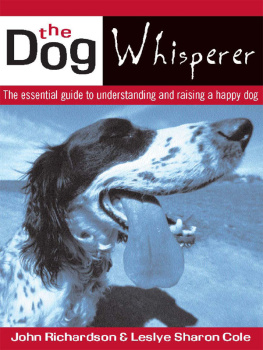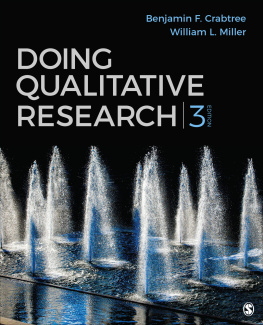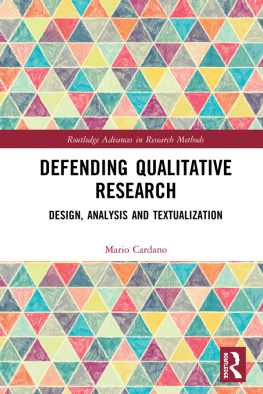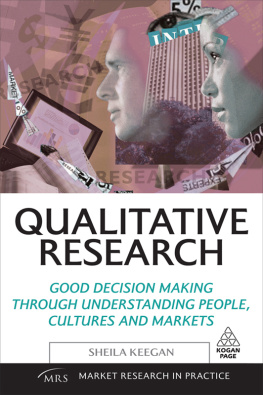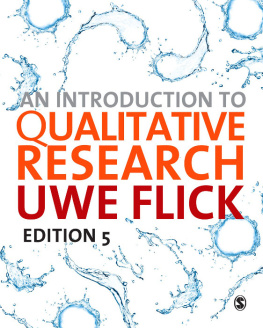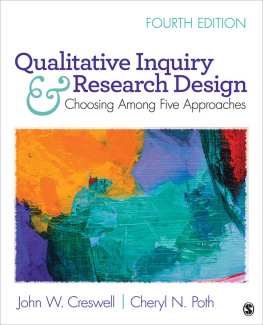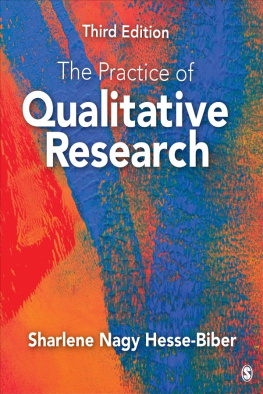First published 1998 by Ashgate Publishing
Reissued 2018 by Routledge
2 Park Square, Milton Park, Abingdon, Oxon, OX14 4RN
711 Third Avenue, New York, NY 10017, USA
Routledge is an imprint of the Taylor & Francis Group, an informa business
Copyright John Richardson and Alison Shaw 1998
All rights reserved. No part of this book may be reprinted or reproduced or utilised in any form or by any electronic, mechanical, or other means, now known or hereafter invented, including photocopying and recording, or in any information storage or retrieval system, without permission in writing from the publishers.
Notice:
Product or corporate names may be trademarks or registered trademarks, and are used only for identification and explanation without intent to infringe.
Publishers Note
The publisher has gone to great lengths to ensure the quality of this reprint but points out that some imperfections in the original copies may be apparent.
Disclaimer
The publisher has made every effort to trace copyright holders and welcomes correspondence from those they have been unable to contact.
A Library of Congress record exists under LC control number: 98072621
ISBN 13: 978-1-138-34430-3 (hbk)
ISBN 13: 978-0-429-43859-2 (ebk)
Angus Bancroft is a graduate of the University of Edinburgh, and formerly a researcher for Save the Children. He is currently studying for a PhD at the University of Wales, Cardiff, researching Gypsies and Travelling People. He teaches Sociology and designs Web pages.
Michael Bloor is Professor of Sociology at University College, Cardiff. He has special interests in the sociology of medicine and has written on issues such as HIV transmission, alcohol and drug use, and health education.
Victoria Butler is currently completing a research degree at the University of Wales, Swansea. Her special interests include embodiment, the negotiation and experience of identity, and the visual communication of adornment.
Sara Delamont is Reader in Sociology at University of Wales College, Cardiff. Her special interests are education, gender and research methods. She has written and edited numerous books, mainly in the field of the sociology of education.
Rebecca E. Dobash is Professor of Social Work at Manchester University. Her special interest is violence against women.
Russell P. Dobash is Professor of Criminology at Manchester University. His special interest is violence against women.
Sally Holland is a Tutorial Fellow in the University of Wales, Cardiff. Previously she was a social worker in South Wales. Her doctoral research is on the assessment of families by social workers.
Duncan Lewis lectures in Human Resource Management at Carmarthenshire College, and in Corporate Strategy at the University of Wales, Lampeter. His doctoral research is on workplace bullying among the lecturing profession in Wales.
Lee Monaghan is a Ph.D student at the University of Wales, Cardiff. His thesis is on bodybuilding subcultures, and he has written on bodybuilding ethnopharrnacology, on alleged links between bodybuilding steroids and violence, and on the methodological problems in gaining access to drugusing bodybuilders.
Odette Parry has been an undergraduate, postgraduate and research fellow at University of Wales College, Cardiff. After a spell lecturing at the University of the West Indies in Jamaica, she is currently a post-doctoral researcher in the Medical School at Edinburgh University.
John Richardson is a lecturer in Sociology and Social Policy at the University of Wales College, Cardiff. He is co-author of books on race relations and on introductory sociology, and he has written articles on a wide range of social problems, including alcoholism, juvenile delinquency, and ageing.
Kate Robson is a PhD student at the University of Wales, Cardiff. Her doctoral research is on the employment experiences and workplace relationships of ulcerative colitis and Crohns Disease sufferers, and her other research interests include the use of the internet as a social research tool.
Alison Shaw is currently a doctoral student in the School for Policy Studies at the University of Bristol, where she is carrying out research on consumers' perceptions and management of the risks in food, focusing on the body as a site of risk. Previously she worked for two years as a researcher in social medicine.
Jonathan Scourfield , formerly a probation officer in the South Wales valleys, is now a Tutorial Fellow in the University of Wales, Cardiff. He has research interests in social work and in the sociology of gender.
Trevor Welland lectures in Sociology at Barry College, and is also a lecturer on the PGCE (FE) course in the School of Education at University
of Wales, Cardiff. His doctoral research is on the professional socialisation of priests.
Emma Wincup is a lecturer in criminology at University of Wales College, Cardiff. She recently completed a Ph.D on bail hostel provision for women, and is currently conducting research on residential social work with offenders. She is also editing a book in the Cardiff Papers series, entitled 'Qualitative Research in Criminology'.
John Richardson and Alison Shaw
This book consists of a collection of papers by sociologists who have used qualitative research methods in order to shed light on 'bodily matters'. Its main purpose is to demonstrate the ways in which qualitative research can further our sociological understanding of the body in contemporary society. There can be little doubt that this collection of empirical studies is timely in the sense that it coincides with an enormous surge of interest in the sociology of the body. One measure of this interest is the decision of the British Sociological Association to devote its 1998 Conference to 'Making Sense of the Body'. Further evidence comes from the popularity and impact of major sociological texts dealing with the body (e.g. Featherstone et al, 1991; Shilling, 1993; Turner, 1992). Of course, it is not just sociologists who have 'discovered' the body in recent years. Indeed, Turner (1996) claims that in the 'somatic society' the body has become the principal field of social, political and cultural activity. Thus, the body is no longer an esoteric specialism but rather a central strand in modern social thought (Scott and Morgan, 1993). Bodily issues now command the attention of sociologists, psychologists, historians, cultural and political theorists, anthropologists, media theorists and health researchers. This common interest has led to a great deal of cross-disciplinary work, much of which has found a platform in major journals such as Body and Society.





